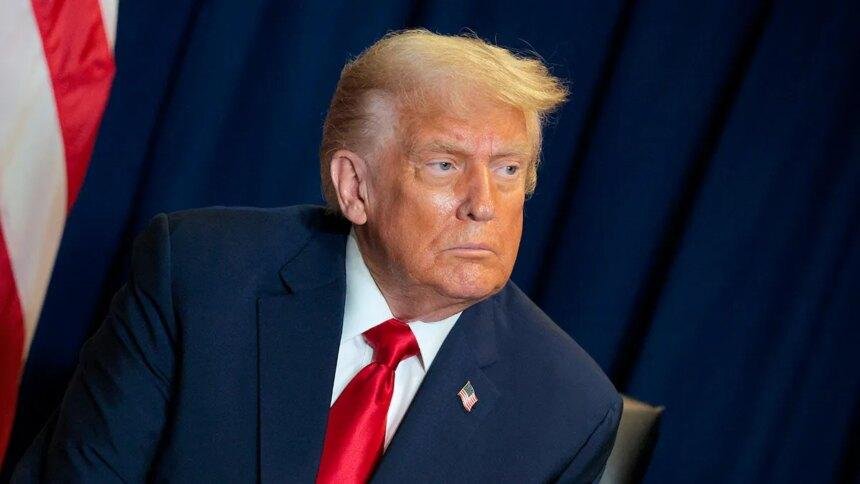Trump Considers Insurrection Act Amid Portland Protests: A Historical Perspective
In a recent statement, former President Donald Trump indicated he might consider invoking the Insurrection Act to deploy federal troops in U.S. cities, particularly in response to ongoing protests in Portland, Oregon. This declaration follows a federal judge’s ruling that blocked the Trump administration from sending National Guard units to the city, raising significant constitutional and historical questions about the use of military force in domestic affairs.
The Insurrection Act: A Brief Overview
The Insurrection Act, enacted in 1807, allows the President to deploy military forces to suppress insurrections and enforce federal laws. Historically, it has been invoked sparingly, with the last significant use occurring during the 1992 Los Angeles riots. The act temporarily overrides the Posse Comitatus Act, which restricts the military’s involvement in domestic law enforcement, thereby granting the President broad authority to federalize National Guard troops and deploy active-duty forces.
Trump’s comments came during a press briefing in the Oval Office, where he stated, “I’d do it if it was necessary. So far it hasn’t been necessary. But we have an Insurrection Act for a reason.” He emphasized the need to ensure public safety, asserting that if lives were at risk and local authorities were unable to maintain order, he would not hesitate to act.
Context of the Portland Protests
The protests in Portland have been ongoing for several years, often centered around issues related to immigration enforcement and police practices. Recently, demonstrations have intensified against the U.S. Immigration and Customs Enforcement (ICE) agency, leading to confrontations between protesters and law enforcement. A federal judge, Karin Immergut, appointed by Trump, ruled that there was insufficient evidence to justify the deployment of federalized National Guard troops, stating that the situation did not warrant such drastic measures.
Trump’s remarks about Portland being “on fire for years” reflect a broader narrative he has used to frame the protests as insurrectionist in nature. He described the unrest as “pure insurrection,” a characterization that has drawn criticism from various quarters, including legal experts and civil rights advocates.
Legal and Political Repercussions
The legal implications of invoking the Insurrection Act are profound. Critics argue that such a move could set a dangerous precedent for federal overreach into state matters. The act has historically been a tool for addressing extreme situations, and its potential use in response to protests raises questions about the balance of power between state and federal authorities.
White House deputy chief of staff Stephen Miller criticized the judge’s ruling, labeling it “one of the most egregious and thunderous violations of constitutional order we have ever seen.” He argued that there is no legal distinction between deploying National Guard troops to protect a federal facility and deploying them for other purposes, such as border security.
Conversely, Illinois Governor JB Pritzker suggested that the Trump administration’s actions could be part of a strategy to create chaos, thereby justifying the invocation of the Insurrection Act. He stated, “The Trump administration is following a playbook: cause chaos, create fear and confusion.” This perspective highlights the contentious political climate surrounding the use of federal troops in domestic situations.
Historical Comparisons
The Insurrection Act has a complex history, often intertwined with issues of race and civil rights. Its invocation during the civil rights movement, for instance, was aimed at enforcing desegregation and protecting the rights of African Americans. The act has been used to quell riots and restore order, but its application has often been controversial, raising ethical questions about the military’s role in civilian life.
In recent years, discussions about the Insurrection Act have resurfaced, particularly during the protests following George Floyd’s death in 2020. At that time, the Trump administration considered invoking the act but ultimately refrained from doing so. The current situation in Portland echoes those earlier tensions, as the nation grapples with issues of systemic racism, police violence, and the right to protest.
Conclusion
As the situation in Portland continues to evolve, the implications of Trump’s comments regarding the Insurrection Act remain significant. The potential for federal intervention in local protests raises critical questions about civil liberties, the balance of power, and the historical context of military involvement in domestic affairs. With the legal landscape shifting and public sentiment divided, the discourse surrounding the Insurrection Act will likely remain a focal point in the ongoing debate about law enforcement and civil rights in America.











